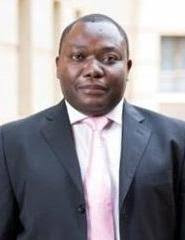
AS conversations about sustainability dominate boardrooms and global markets, Environmental, Social and Governance (ESG) standards are fast becoming a litmus test for corporate resilience.
For Zimbabwe, this shift is not just a compliance exercise; it is an opportunity to attract global capital, rebuild trust and position the country as a regional leader in sustainable business.
But there is one profession often overlooked in this conversation that could change the game: actuaries.
Globally, ESG is moving from soft talk to hard rules. The International Financial Reporting Standards (IFRS) Foundation recently introduced IFRS S1 and S2: disclosure standards that demand companies quantify and explain how sustainability and climate risks affect their business models. For Zimbabwean companies, this creates both pressure and possibility.
Pressure, because it requires credible data, modeling and risk projections. Possibility, because those that master ESG reporting will win investor confidence, unlock cheaper capital, and future-proof their operations. This is precisely where actuaries step in.
Actuaries have long been trusted with some of the toughest modeling problems in finance and insurance: from valuing pension liabilities to forecasting catastrophic risk. That toolkit is now invaluable for ESG.
l Climate scenario modeling: Actuaries can project the financial impact of extreme weather events or carbon-transition risks on corporate balance sheets;
l IFRS S1 & S2 compliance: They can integrate sustainability risks into financial reporting, ensuring disclosures meet international standards; and
- Unpacking environmental laws for real estate in Zimbabwe
- Veld fire management strategies for 2022
- Stop harassing media for reporting truth
- Letters to the editor: PVOs Bill must be shot down
Keep Reading
l Broader advisory: Beyond compliance, actuaries can guide boards on embedding ESG into investment, product design and risk management strategies.
In short, actuaries bring discipline, independence, and quantitative rigor to what has too often been a “greenwashing” exercise.
Zimbabwe is not standing still. In 2023, the Zimbabwe Stock Exchange (ZSE) introduced Practice Note 16, a Sustainability Disclosure Checklist that makes ESG reporting mandatory for all listed companies with financial years beginning on or after January 1, 2024.
This requires companies to disclose sustainability information, economic, environmental, social, and governance metrics, within their annual reports. The move brings Zimbabwe closer to global best practice and signals to investors that the country is serious about transparency and sustainability.
While full adoption of the IFRS Sustainability Standards (IFRS S1 and S2) is still being phased in, the ZSE’s mandate ensures ESG reporting is no longer optional. Companies that fail to produce credible disclosures risk losing investor confidence, while those that excel stand to attract international capital.
Too often ESG is framed as a compliance burden. In reality, it is a growth strategy. Pension funds investing in renewable energy, insurers offering climate-adaptive products, and corporates publishing world-class ESG reports aren’t just ticking boxes, they’re creating new value streams and attracting global capital.
If Zimbabwe embraces actuarial expertise in this space, we can move beyond patchy disclosures and build a reputation as a market where ESG is done seriously and credibly.
That credibility could be the difference between being overlooked or becoming a regional magnet for sustainable finance.
Actuaries have always been quiet professionals, working behind the scenes. But in this new ESG era, they may well be Zimbabwe’s secret weapon. By marrying sustainability with numbers, models and accountability, they can ensure that ESG in Zimbabwe is not just rhetoric, but a driver of growth, resilience, and trust.
The global markets are watching. The question is: will we put our actuaries at the table?
Mashoko is a senior consulting actuary at African Actuarial Consultants. — [email protected]; Tel: +263 (242) 884 140/9.











